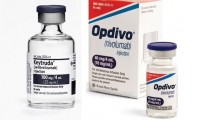-
AI-Based Blood Test Detects Ovarian Cancer With 93% Accuracy
- Source: drugdu
- 109
- February 1, 2024
-
【EXPERT Q&A】What documents and certifications are needed, and what are the main processes for exporting pharmaceuticals to Canada?
- Source: drugdu
- 200
- February 1, 2024
-
Pfizer’s layoff campaign ramps back up with dozens of SF-area cuts expected next month
- Source: drugdu
- 159
- January 31, 2024
-
Grifols files lawsuit against hedge fund for making ‘false and misleading statements’
- Source: drugdu
- 184
- January 31, 2024
-
Hengrui Medicine’s immunosuppressant tacrolimus sustained-release capsules were approved for marketing in the United States
- Source: drugdu
- 118
- January 31, 2024
-
FDA Grants Priority Review to AstraZeneca and Daiichi Sankyo’s Enhertu for HER2+ Solid Tumors
- Source: https://www.pharmexec.com/authors/pharmaceutical-executive-editorial-staff
- 139
- January 31, 2024
-
Citing Severe Health Risks, FDA Issues Warning Against Using Tianeptine Products
- Source: drugdu
- 96
- January 30, 2024
-
Merck’s Keytruda extends life for kidney cancer patients after surgery, while Bristol’s Opdivo fails again
- Source: drugdu
- 101
- January 30, 2024
-
First of Its Kind Software Uses AI and ML for Personalized Disease Prediction
- Source: drugdu
- 93
- January 27, 2024
-
Bladder Cancer Therapies Developer Raises $380M in the First Biotech IPO of 2024
- Source: drugdu
- 91
- January 27, 2024
your submission has already been received.
OK
Subscribe
Please enter a valid Email address!
Submit
The most relevant industry news & insight will be sent to you every two weeks.













